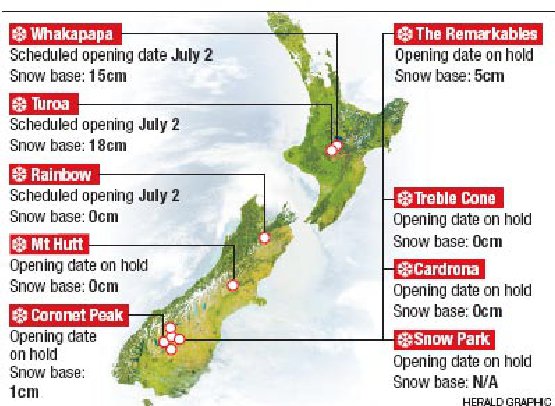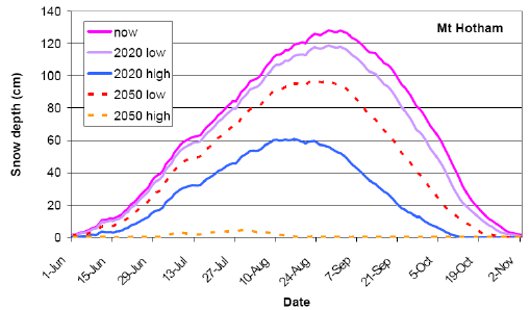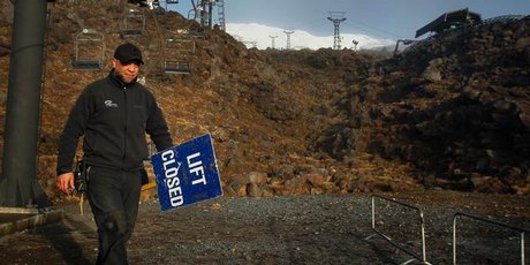New Zealand Snow No Show = No Jobs
Posted on 28 June 2011 by Rob Painting
An unusually warm autumn and early winter in New Zealand 2011 has meant skifields up and down the country are without snow.

Figure 1 - NZ Skifield status. Graphic from New Zealand Herald.
Normally at this time of the year, skifields are heavily covered in snow, and skifield operators are getting ready to open. This winter, however, many skifields are without any snow whatsoever. As skiing is the backbone of New Zealand's winter tourism industry, it's a worrying time for many operators and towns that rely on the income that skiing pumps into the local economy.
Future Snowfall
Long-term projections for New Zealand are for a decline in snowfall as temperatures continue to climb. Across the ditch in Australia, even though they are currently enjoying a great start to the ski season, they too will see a long-term decline in snowfall, snow depth, and a retreat of snowlines to higher elevations - see figure 2 below:

Figure 2 - Simulated 20 year average snow depth profiles at Mt Hotham, Australia (1882m) for the present (1979-1998), 2020 and 2050. From (Hennesey 2003)
A Forgotten Impact of Global Warming: Job losses

Figure 3 - Whakapapa Skifield, New Zealand. Image from New Zealand Herald.
Now before any readers jump to conclusions, the current situation in New Zealand is a combination of a strong La Nina (often wet & warm here) coupled with the inexorable warming of the global climate, I am in no way suggesting that this is the start of a new trend. Indeed if El Nino takes hold later this year, New Zealand should see a cool winter again next year, and of course a cold snap could easily return things to normal (although above average temperatures are forecast for the rest of the winter).
Rather the lesson here is that we have seen a glimpse of a likely future scenario for many skifields, not just in New Zealand, but around the world too. Having shivered through a couple of extremely cold winters over the last two years, I know it must difficult for some northern hemispherians to accept, but they too will face this problem sooner or later. The end of reliable snowfall is going to be a major bummer for the 'ski bunnies' amongst us, but it will be a financial disaster for countries, towns and resorts that rely on 'snow tourism' for their livelihoods.
So the next time you read, or hear, of someone claiming a carbon tax will cost jobs, you remind them that there are alternatives to fossil fuels, but no substitute for snow. Global warming is certain to cost many people their jobs.































 Arguments
Arguments






























Not sure where to ask about global snowlines but is the data available for say 50 years of global snowlines to establish trends?